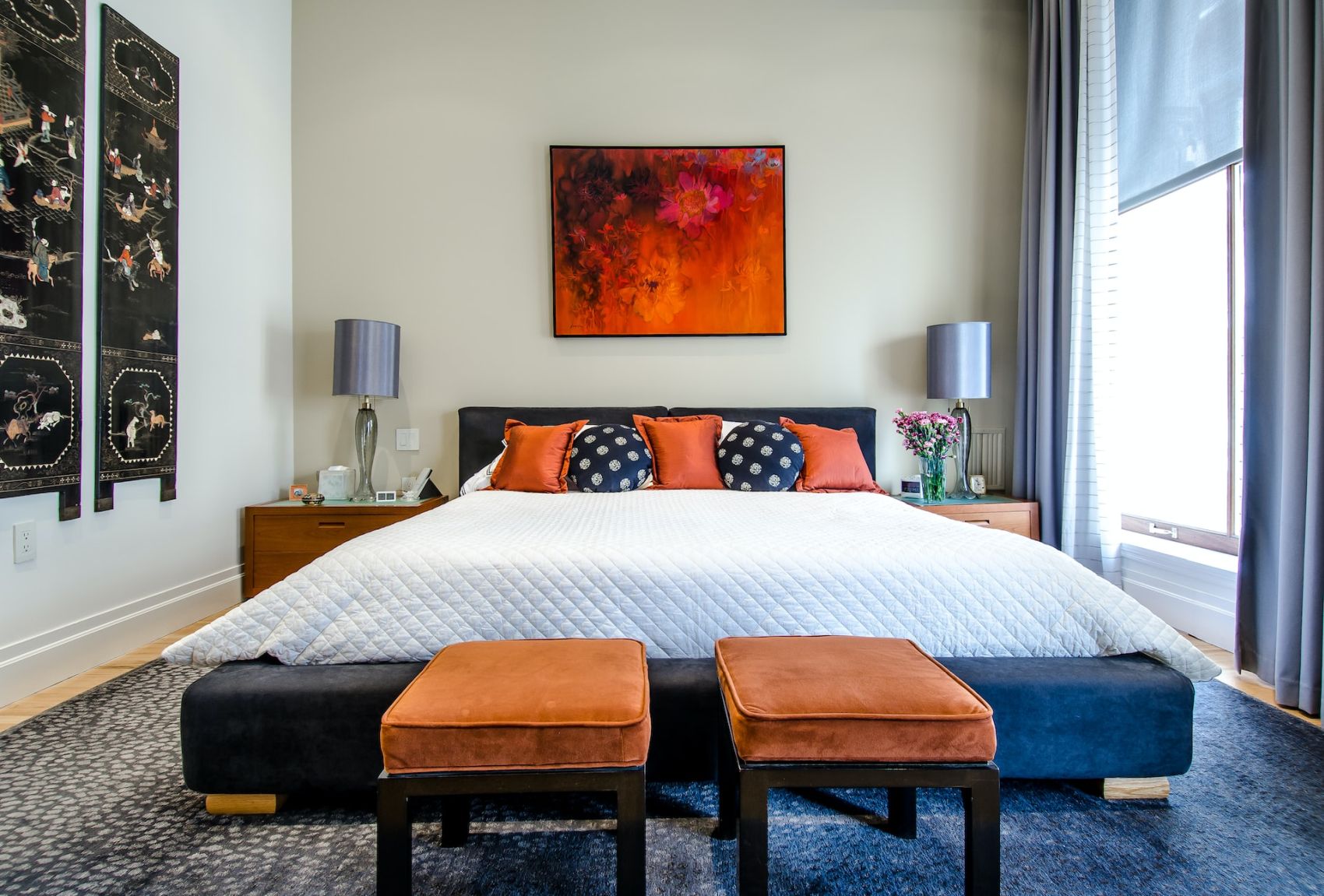How to sleep to get enough sleep? Tips for better sleep

Feeling bad in the morning? It may be because you are not getting enough sleep. Inadequate sleep quality can have many negative consequences, from feeling irritable and having difficulty concentrating, to weight gain and an increased risk of serious health problems. But the good news is that there are things you can do to get enough and quality sleep every night.
- Sleep time. How much sleep should you get?
- A well-prepared bedroom
- Sleep pills - choose safe ones
- Set a daily schedule and stick to it
- Take care of yourself and do preventive screenings
- Summary
In this article, we'll discuss what you need to do if you have sleep problems to wake up feeling refreshed and full of energy every morning. We'll look at how much sleep you really need, what lifestyle habits will help you get enough rest, and we'll also discuss some tips on how to create an optimal sleep environment. So if you want to make sure your body is restored and ready for the day ahead, keep reading to learn how to get the restful sleep your body needs.
Sleep time. How much sleep should you get?
A golden rule that has been repeated for many years is that adults who want to maintain good health should sleep about 8 hours a day. This is a nice starting point if you expect simple answers. It is also a kind of compromise, since the actual need for sleep depends on a very large number of factors, and it is impossible to calculate this time precisely. It consists of our age, health and hormonal status, or the sleep environment itself.
Ideally, the length of sleep should be a multiple of 1.5 hours, as this is how long one average sleep cycle takes. By planning for this length of sleep (usually 6, 7.5 or 9 h) we maximize the time to wake up in the shallow sleep phase. Waking up in this phase is much smoother than in the deep phase - it's much easier to wake up and you can get into full swing much faster. These standard 8 hours may be close to the optimum when you consider the 7.5 hours of sleep + the time it takes to fall asleep.
A well-prepared bedroom
There are many ways to prepare your bedroom so that it is friendly to a good night's sleep. Here are some suggestions:
- Regulate the temperature - the optimal temperature for sleep is around 18-20°C. Make sure the room is not too warm or too
cold. Remember that a slightly lower
temperature than we maintain in the apartment during the day. - Pay attention to lighting - avoid bright, cold light, especially shortly before bedtime. For the duration of sleep, the bedroom should
prevail complete darkness. This can be achieved by using blackout
blinds or shutters. Sleep blindfolds are also sometimes helpful. - Choose a matching mattress and pillows - don't just go by marketing descriptions. The mattress and pillows should be tailored to
Your body weight and the way you sleep - on your side, on your stomach or on your
back. - Avoid unnecessary stimuli - make sure your bedroom is free of unnecessary stimuli, such as sounds from the TV or
computer. Maintain peace and quiet to allow your body and
mind to rest. - =Control air humidity - dry air in the bedroom can make it difficult to fall asleep. You can use a humidifier to maintain the right
humidity level in the bedroom. - Ensure proper ventilation - ensure proper air circulation in the bedroom to give your body the right amount of
oxygen while you sleep. A good practice is to open the windows and ventilate the
bedroom every evening.

Sleep pills - choose safe ones
Unless you have clinical insomnia, forcing a prescription from your doctor for sleeping pills will be a bad idea. They have powerful effects, and are often invasive and even addictive, so it's important to use them only in critical situations when you really need them.
If you only have mild sleep problems to combat, such as a long time to fall asleep or wake up during the night, then try safer alternatives.
What do we have available? Check out safe supplements for improving sleep quality:
- Melatonin - or the so-called sleep hormone, one of the most natural choices. It works great when there are any factors that interfere with natural melatonin production, such as shift work, jet lag, overexposure to bright light in the evening, or drinking caffeine too late. Melatonin is very inexpensive, safe and effective, even with long-term use.
- L-Theanine - an interesting amino acid found mainly in green tea. Theanine is known for its ability to induce the brain into a state similar to that during meditation. Also, it is very safe and versatile. For sleep, it works especially well in cases where there is a problem with relaxation and getting rid of intrusive thoughts in the evenings. However, it does not cause intrusive sleep and sedation, so it can be used even during the day for stress reduction.
- Glycine - a simple and effective amino acid. In the brain, it acts as a neurotransmitter that inhibits brain activity. It is the second main inhibitory neurotransmitter, right after GABA. Studies show that glycine taken at a dose of 3 g before bedtime helps reduce the symptoms of not sleeping the next day, when sleep was too short.
- Magnesium - this element is very necessary for regulating the balance between excitatory and inhibitory processes of brain activity. Its deficiency is common, and it can manifest itself in irritability, problems with relaxation or deterioration of sleep quality, among other things. Supplementing magnesium in the diet often has a quick and noticeable effect.
Set a daily schedule and stick to it
For healthy sleep, it is important to regulate the daily rhythm. Falling asleep and getting up at regular times is very beneficial for us. Regular sleeping times facilitate the process of "cleaning the brain" from the harmful byproducts of its daily work and metabolism. Such regularity also ensures that, over time, the body will prepare itself perfectly for falling asleep and waking up, triggering the right hormonal responses at the right times.
Make sure your morning and evening routines are conducive to regulating your bedtime rhythm and shaping it naturally. Ideally, have the same schedule throughout the week, including weekends.
In the morning: take a cool shower and expose yourself to sunlight. How about some light gymnastics? Try not to drink coffee immediately after waking up, give yourself a minimum of 1 hr, and preferably at least 3 hr. Instead, eat a solid, wholesome breakfast.
In the evening: spend at least the last hour in a quiet atmosphere. Turn off the TV and computer, put the phone away. Reduce the brightness of the light, and preferably make it warm in color. Avoid heavy physical activity before bedtime so as not to over-stimulate the nervous system at a time when it should already be calming down. In the evening, it is a good idea to introduce the practice of meditation or reading books. Meditation combined with breathing exercises is a great way to fall asleep more easily.
Caution, don't drink alcohol! Although some people regularly drink small amounts of alcohol to fall asleep better, this is only an apparent benefit. Alcohol can actually make it easier to fall asleep, but it severely impairs the quality of sleep in the second half of the night, which negatively affects the overall sleep balance. Alcohol also has a neurotoxic effect.
Take care of yourself and do preventive screenings
If your sleep isn't bringing you adequate recovery and satisfaction in the morning, despite taking care of the aforementioned good practices, it's worth doing a solid health check-up. Perhaps you are struggling with some hormonal problems (such as sex hormone deficiency or thyroid disorders), have anemia or chronic inflammation. Any of these conditions can impair recovery, even when you sleep long enough and maintain healthy sleep hygiene.
Ask household members if they have noticed you snoring. If you have a snoring problem or happen to wake up suddenly during the night, you may have sleep apnea or some upper respiratory tract structural problems. It is then worth consulting an otolaryngologist.
Introduce general preventive health care into your life as well. Eat a minimum of 400 grams of vegetables and fruits every day (and preferably > 800 grams), and take in an amount of calories close to your energy needs. Engage in moderate physical activity on a regular basis - preferably one that you find enjoyable and satisfying.
Summary
If you're wondering how to get enough sleep, fortunately there are plenty of options to check out. There are many good practices and gentle dietary supplements to help regulate sleep that you can safely test in your case. Remember that good and restorative sleep is one of the most important markers of health, and you need to take care of it throughout your life.
 ⮜ Previous article
⮜ Previous article
Nattokinase - a natural enzyme for cardiovascular health
 Next article ⮞
Next article ⮞